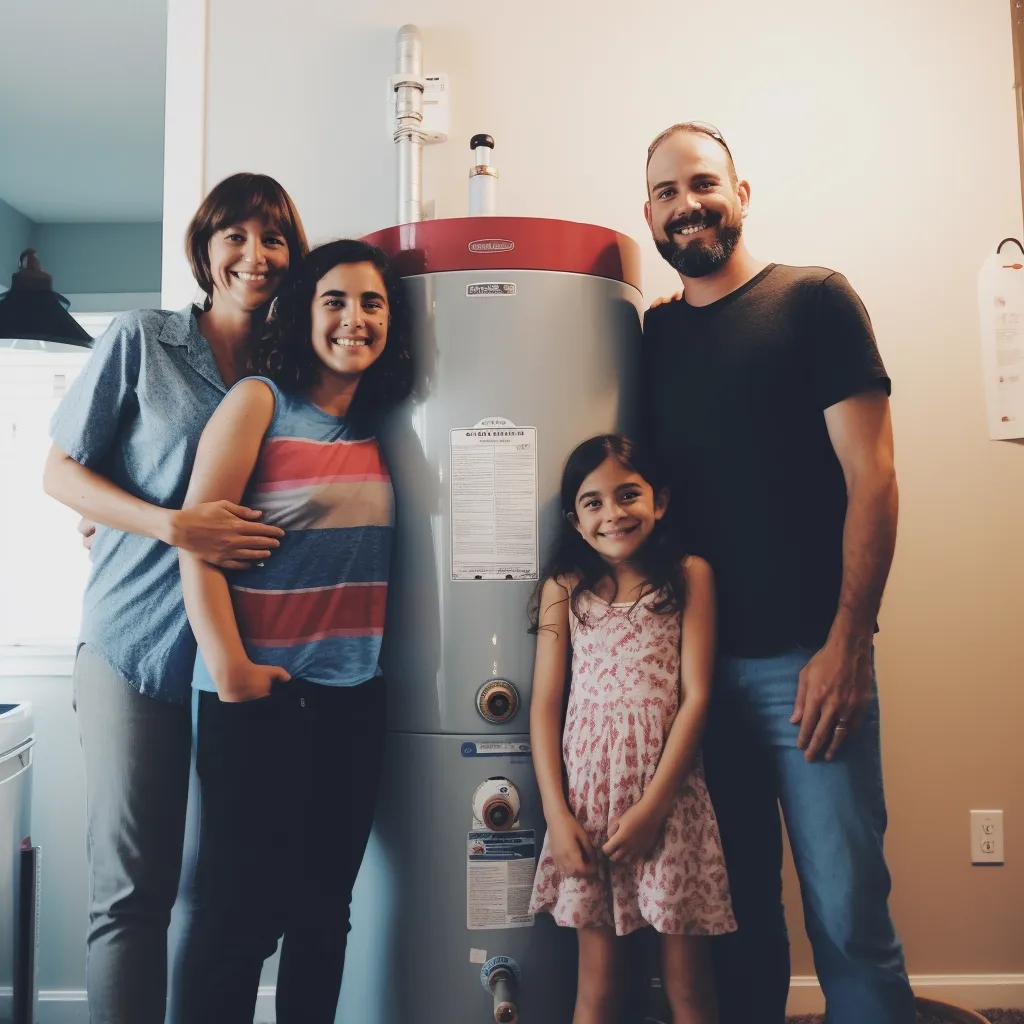Choosing Eco-Friendly Water Heaters: A Guide to Energy-Efficient Options

In a world where environmental consciousness is becoming increasingly important, homeowners are seeking ways to make eco-friendly choices in every aspect of their lives. One area where significant strides can be made in reducing your carbon footprint is your water heating system. Traditional water heaters can be energy hogs, but there are energy-efficient and environmentally friendly alternatives available. In this comprehensive Murfreesboro guide, we'll explore the options for energy-efficient water heaters, with a focus on heat pump water heaters and solar water heaters, allowing you to make an informed decision on going green with your water heater replacement.
Heat Pump Water Heaters: Harnessing the Power of Heat Exchange
Heat pump water heaters are a remarkable technology that efficiently heats water by transferring heat from the surrounding air to the water. Unlike traditional electric or gas water heaters, which generate heat directly, heat pump water heaters work on the principle of heat exchange. Here's how they work:
How Heat Pump Water Heaters Work: When you turn on the tap, the heat pump system extracts heat from the ambient air using a refrigerant. This heat is then transferred to a coil containing the water you want to heat. As the refrigerant releases heat, it cools down and is pumped back to the evaporator to repeat the cycle.
Advantages of Heat Pump Water Heaters:
Energy Efficiency: Heat pump water heaters are incredibly energy-efficient, using up to 50% less electricity compared to traditional electric water heaters. This translates to significant cost savings on your energy bills. Environmentally Friendly: Because they rely on ambient air temperature, heat pump water heaters produce fewer greenhouse gas emissions, making them an environmentally responsible choice. Versatility: They can be installed both indoors and outdoors, making them suitable for various home layouts.
Solar Water Heaters: Tapping into Renewable Energy
Harnessing the power of the sun to heat your water is not only energy-efficient but also a genuinely green approach. Solar water heaters are designed to capture sunlight and convert it into heat for your hot water needs.
How Solar Water Heaters Work: Solar water heaters consist of solar collectors, which are typically installed on rooftops or in sunny areas of your property. These collectors absorb sunlight and convert it into heat energy. This heat is then transferred to a storage tank filled with water. There are two primary types of solar water heaters:
Active Solar Water Heaters: These systems use pumps to circulate water through the collectors and into the storage tank. They are highly efficient but require electricity to operate the pumps.
Passive Solar Water Heaters: Passive systems rely on natural convection to move water through the collectors and into the tank. While they are simpler and have lower maintenance requirements, they may be less efficient than active systems.
Advantages of Solar Water Heaters:
Renewable Energy Source: Solar water heaters tap into an abundant and renewable energy source, reducing your reliance on non-renewable fuels. Significant Savings: Once installed, solar water heaters can lead to substantial long-term savings on energy bills. Reduced Environmental Impact: Solar water heaters have a minimal carbon footprint, as they do not emit greenhouse gases during operation.


Choosing the Right Energy-Efficient Water Heater for Your Home
When considering a water heater replacement, it's essential to assess your specific needs and circumstances to choose the most suitable eco-friendly option. Here are some factors to consider:
Climate Considerations: Your local climate plays a pivotal role in determining the efficiency of heat pump and solar water heaters. Heat pumps thrive in moderate to warm climates, while solar heaters perform best in areas with ample sunlight.
Budget Assessment: While heat pump and solar water heaters offer long-term cost savings, it's essential to evaluate your budget and the potential return on investment. Remember that these systems are an investment in both your home's comfort and the environment's well-being.
Space Availability: Determine whether you have sufficient space for the installation of your chosen system. Solar collectors require rooftop or ground space, while heat pump water heaters need space for their units.
Electricity Costs: Assess your local electricity rates. In regions with high electricity costs, the energy savings from a heat pump water heater can be particularly significant, making them a wise choice for cost-conscious Murfreesboro homeowners.
Maintenance Considerations: Consider the maintenance requirements of each system. Solar water heaters tend to have fewer moving parts and lower maintenance needs compared to heat pump water heaters, which may require occasional servicing.
Energy-Efficient Water Heaters: A Sustainable Choice
The environmental challenges we face today necessitate a shift towards more sustainable living practices. One area where homeowners can significantly reduce their carbon footprint is their choice of water heater. Traditional water heaters, whether gas or electric, can be energy-intensive and detrimental to the environment due to their reliance on fossil fuels or excessive electricity consumption. Fortunately, there are alternative options available that are not only energy-efficient but also eco-friendly.
Why Energy Efficiency Matters
Before delving into the specifics of heat pump and solar water heaters, it's essential to understand why energy efficiency is paramount. The production of hot water accounts for a significant portion of a household's energy consumption. By selecting an energy-efficient water heater, you can not only cut down on utility bills but also decrease greenhouse gas emissions.
Reducing energy consumption is not just about saving money; it's about being responsible stewards of the planet. By choosing an energy-efficient water heater, you're actively contributing to the global effort to combat climate change and reduce the strain on natural resources.
A Greener Future with Energy-Efficient Water Heaters
In today's environmentally conscious world, choosing energy-efficient water heaters is not just a matter of personal preference; it's a responsibility. Heat pump water heaters and solar water heaters offer a compelling blend of energy savings, reduced environmental impact, and long-term financial benefits.
By taking the time to assess your specific needs, climate, budget, and maintenance preferences, you can make an informed choice for your home and the planet. Investing in an energy-efficient water heater isn't just about hot water; it's about making a lasting commitment to a more sustainable future.
As you embark on your journey to a greener home, remember that each small step contributes to a more significant environmental transformation. Embrace energy-efficient water heaters, and you'll not only enjoy the benefits of hot water but also the satisfaction of knowing you're actively participating in a more sustainable and eco-friendly way of life. Make the switch today, and let your water heater be a beacon of responsible living in your home.

Contact Us
GET IN FULL TOUCH
PHONE: 615-671-4918
EMAIL:
steven@waterheatermurfreesboro.com
Rutherford Plumbing Heating & Cooling
Murfreesboro, TN 37128
